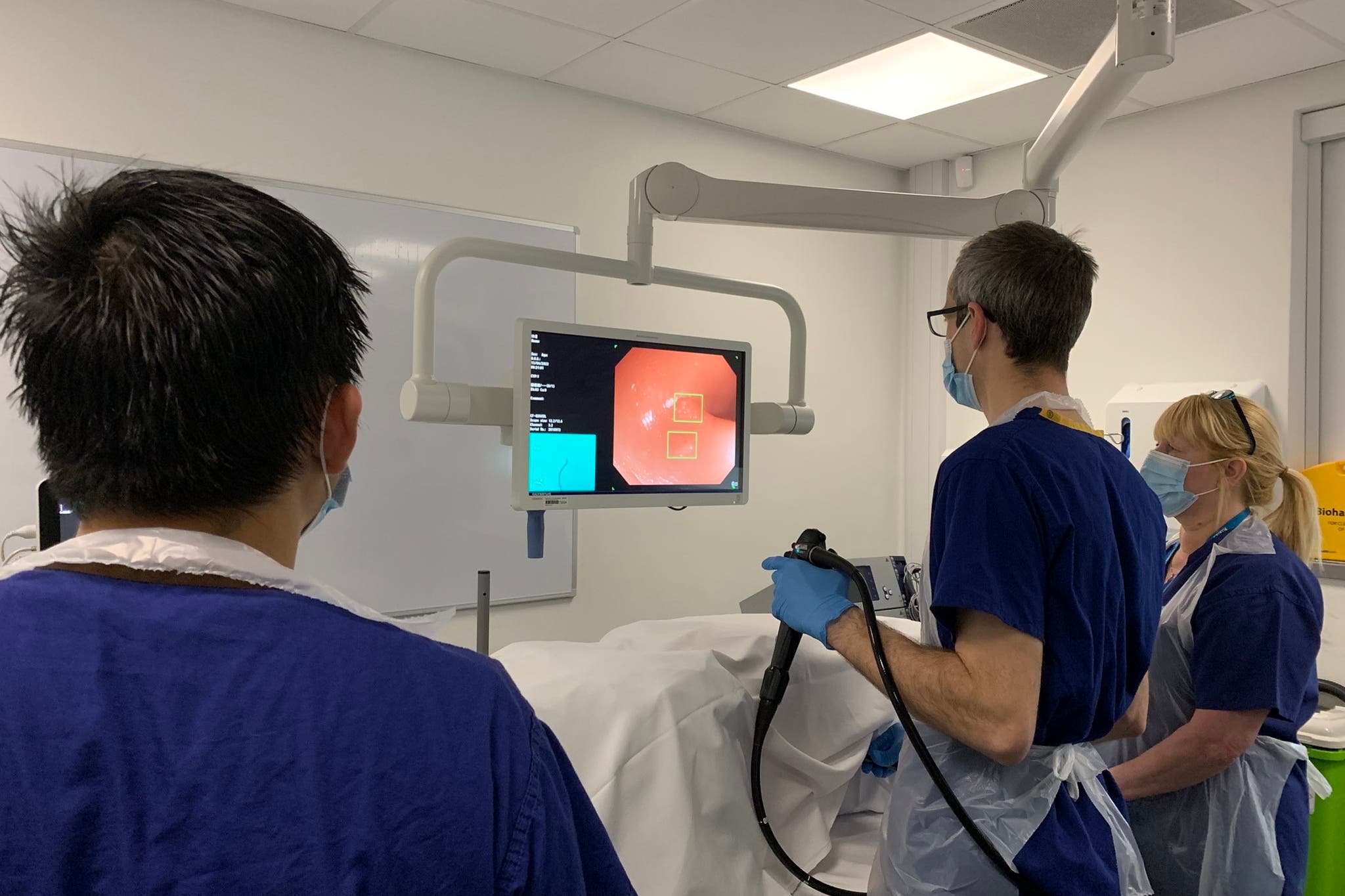AI-powered bowel tests ‘will save lives’
GI Genius analyses the video feed of a colonoscopy in real-time and alerts medics to let them know which areas to focus on.

Your support helps us to tell the story
From reproductive rights to climate change to Big Tech, The Independent is on the ground when the story is developing. Whether it's investigating the financials of Elon Musk's pro-Trump PAC or producing our latest documentary, 'The A Word', which shines a light on the American women fighting for reproductive rights, we know how important it is to parse out the facts from the messaging.
At such a critical moment in US history, we need reporters on the ground. Your donation allows us to keep sending journalists to speak to both sides of the story.
The Independent is trusted by Americans across the entire political spectrum. And unlike many other quality news outlets, we choose not to lock Americans out of our reporting and analysis with paywalls. We believe quality journalism should be available to everyone, paid for by those who can afford it.
Your support makes all the difference.Artificial intelligence (AI) could help medics identify and remove abnormalities in the bowel before they develop into cancer, a trial has found.
The device, known as GI Genius, analyses the video feed of a colonoscopy – where a camera is inserted into the bowel – in real time.
The system places a green box around any potential cancerous and precancerous polyps, known as adenomas, on the video monitor and sounds an alert to let medics know to focus on the highlighted area.
This trial has demonstrated that using artificial intelligence can significantly increase detection of the kind of abnormalities in the bowel that may progress to cancer
Using the device will save lives, according to the researcher who led the study.
He also said the technology allowed doctors to find lesions that were “more likely to be missed with the human eye”.
Some 2,032 patients across 10 centres in England were recruited for the Colo-detect study.
Of the group, 1,015 were given a colonoscopy using GI Genius, while 1,017 were given a standard colonoscopy.
The study found that GI Genius found 0.36 more adenomas during each colonoscopy and identified at least one adenoma in an extra eight out of every 100 people having the test.
It also helped detect more sessile serrated adenomas, which are flat precancerous growths on the colon.
The AI helped us find more of these lesions, the ones which are more likely to be missed with the human eye
Professor Colin Rees, a consultant gastroenterologist at South Tyneside and Sunderland NHS Foundation Trust, and professor of gastroenterology at Newcastle University, led the trial.
He said: “This trial has demonstrated that using artificial intelligence can significantly increase detection of the kind of abnormalities in the bowel that may progress to cancer.
“We are able to find these lesions, remove them and stop these lesions turning into cancer.
“Crucially, we know that some of the polyps that lead to cancer are small polyps or flat polyps. The AI helped us find more of these lesions, the ones which are more likely to be missed with the human eye.”
According to Cancer Research UK, bowel cancer is the fourth most common cancer in the UK, with about 44,100 new cases every year.
“To me, that’s a tragedy because bowel cancer is a disease that people shouldn’t be dying from,” Prof Rees said.
“We have a really long window of time when these polyps develop into cancer, probably about 10 to 15 years from developing a point to them becoming cancer.
“We have that period to find these lesions and remove them and reduce the risk of people getting cancer.
“We now use this technology routinely in our practice and I really hope that it will be used more widely.”
I want to thank each patient who participated in this trial, because without them, we could not have completed this vital work
Prof Rees said he is “delighted” with the findings, which are published in in Lancet Gastroenterology and Hepatology, adding: “Simply put, it will save lives.”
“The fact that we recruited 2,032 patients across the country is phenomenal,” Prof Rees said.
“I want to thank each patient who participated in this trial because, without them, we could not have completed this vital work.
“There has also been a tremendous effort by all of the research teams involved and I want to express my gratitude for their support.”
Colo-detect is part of Colo-speed, a bowel cancer research group funded by The Sir Bobby Robson Foundation, part of Newcastle Hospitals Charity, and the Parabola Foundation.